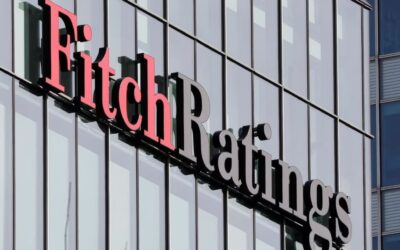Almost no one saw it coming. As the Iron Sword War erupted, so did dire economic predictions. With high interest rates, persistent inflation, and a somber national mood, analysts foresaw a crisis. The shekel depreciated, bond yields soared, and Israel’s stock market plunged. Yet, despite these challenges, 2024 proved to be a record-breaking year for many Israeli companies, with sectors across the economy reporting unprecedented profits.
Financial statements from 2024 reveal a surprising trend: Israeli businesses not only weathered the war but thrived. As Mizrahi Tefahot Bank CEO Moshe Lari observed, “We are seeing records in revenue, profitability, yield, and dividend distribution across banking, insurance, retail, and real estate. It’s as if we’ve normalized the chaos.”
A key factor behind this resilience was the state’s injection of NIS 20 billion into the economy, with 75% funneled into consumer spending. According to the Bank of Israel, private consumption grew by 5.4% at the end of 2024 compared to pre-war levels. Despite expectations of economic stagnation, tax revenues exceeded forecasts, reaching over NIS 455 billion.
Food retailers saw operating profits soar by 58%, reaching NIS 1.9 billion, fueled by price hikes and increased domestic spending. “People stayed in Israel longer and bought more,” noted industry expert Uri Bartov. The disruptions in global supply chains allowed local manufacturers to capitalize on limited imports, further driving profits. Fashion retailers also saw a surge, with sales at leading brands jumping 15%. Consumers, unable to travel abroad, redirected spending to local brands. Castro led the industry with a 19% sales increase, and its stock price soared by over 150%.
The insurance industry doubled its profits, reaching NIS 6.4 billion across Israel’s five largest firms. Concerns about war-related claims were offset by state compensation programs and stock market gains. “The low unemployment rate and the market’s overall rise supported insurance profits,” explained Lior Yochafez, Deputy CEO of Menora Mivtachim.
Israeli banks thrived amid high interest rates, collectively earning NIS 30 billion—up 17% from the previous year. “The interest rate environment remained elevated due to war-related risks, benefiting banks through high credit spreads,” said Clal Insurance’s Uri Bartov. Bank stocks surged by over 40% in 2024, contributing to record highs in the Tel Aviv Stock Exchange. With Israelis spending more domestically, credit card transactions soared to NIS 563 billion, a 12% increase. Generous government grants and flexible payment plans encouraged higher credit usage, driving profits for Isracard, Cal, and Max.
Despite labor shortages and extended construction timelines, Israel’s real estate sector flourished. Sales of new apartments surged by 144%, supported by aggressive 20/80 financing deals. “The housing market always finds a way to recover and grow stronger,” noted Sigma-Clarity’s Yair Shani. However, recent regulatory measures limiting contractor financing may temper future growth. With international travel curtailed, Israeli shopping malls saw increased foot traffic and spending. Revenue for Azrieli, Melisron, and Big increased by 13%, driven by a shift in consumer behavior. “Malls gained from Israelis staying put and redirecting entertainment budgets locally,” noted investment analyst Yaniv Pagot.
While parts of the economy faced difficulties, the largest and most influential corporations thrived. The war led to increased government spending, supply chain disruptions that favored domestic producers, and shifts in consumer behavior that boosted demand for local goods and services. The unexpected outcome of 2024 has demonstrated the resilience of Israel’s economic infrastructure and its ability to adapt in times of national crisis.
Image credit: Freepik





0 Comments